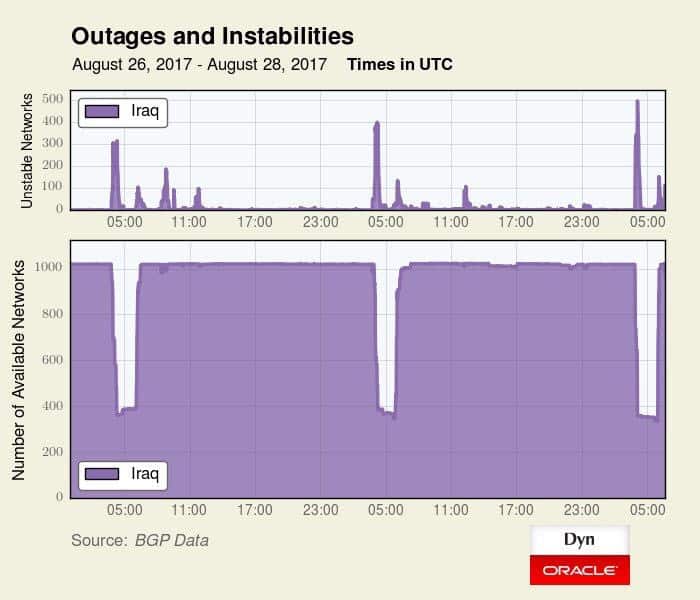Note: This is a guest post by Muhannad Hameed of Iraqi Network for Social Media
Around the world, internet disruptions are harming economic growth, disconnecting people, and putting lives in jeopardy. In the meantime, as the digital economy grows, it is becoming even more expensive for nations to shut down the internet. Without coordinated action by the international community, this damage is likely to accelerate and further weaken economic growth.
In recent years, Iraq has been part of a startling global trend in which governments are blocking access to the internet during school exam periods to prevent leaking of exam questions. For students, cutting off their core means of communication during this stressful time makes it even more challenging to succeed. Further, internet shutdowns are a blunt instrument that impose a heavy economic burden and violate human rights across the entire country, where people depend on the internet to communicate and stay safe in an often-volatile environment.
Three years in a row
Iraq experienced its first total internet service shutdown in 2014, which the government imposed in an evident attempt to combat embarrassing online news, while claiming it was due to “current security incidents and the exceptional situation that Iraq is having.”
Roughly a year later, in July 2015, Iraq shut down the internet during high school final exams to stop leaking of exam questions. The Iraqi Ministry of Communications required all service providers, including the mobile 3G service providers, to black out service for three hours every day for the whole three weeks of the exams. Civil society groups immediately demanded the Iraqi government withdraw the blocking orders. The government issued the same shutdown notice in 2016 and extended the service shutdown to include the elementary- and secondary-school final exam periods. Similar blocking in February 2017 made this the third straight year of exam shutdowns in Iraq, according to Dyn Research.
The 22 instances of total-service shutdown from July 2015 to June 2016 cost Iraq more than USD $209 million in lost economic growth, as shown in a 2016 report by Darrell M. West, who is vice president and director of Governance Studies and founding director of the Center for Technology Innovation at Brookings Institution.
[Source]
[Source]
This June 2017, the Ministry of Communications again ordered the service providers to shut down the internet for one hour on each exam day. As the leaked email below shows, Iraqi internet service providers sent a copy of the shutdown notice to their resellers informing them about the service blackout timing schedule:
Likewise, on July 2, 2017 — the first day of high school final exams — the Iraqi government cut access to the internet again on each exam day throughout the three-week exam period.
All internet service providers across the country shut down their internet service in compliance with the government orders. It affected every provider — whether home or business service provider, wireless or cable, and even a mobile 3G service provider. This total service blackout included the Kurdistan region, which is undergoing a period of extreme unrest, putting people at even greater risk of harm.
The story did not change in August, as documented by Dyn:
[Graph source: Dyn Research]
Nor did it change this month, when the government once again shut down the internet for exams.
Until this stops, we keep fighting
It appears that the Iraqi government has become increasingly comfortable blocking access to all internet services. While it looks like the government is attempting to mitigate the negative social and economic impact of these shutdowns by reducing blocking to specific days within the exam period, it must recognize that this rights-abusing tool is not appropriate under any circumstances. Shutting down access to the whole internet – even for a short period – harms human rights, damages the economy, and erodes confidence in the governments that take such drastic and ill-advised steps.
Fortunately the international consensus against internet shutdowns is growing, and the global #KeepItOn coalition continues to expand. Together, members of the coalition are raising awareness and building support for push back in Iraq and elsewhere through projects like Shutdown Stories and the Shutdown Tracker Optimization Project (STOP). And together, we will build a world where no matter where you live, repeated, deliberate network disruptions will one day be a thing of the past.




